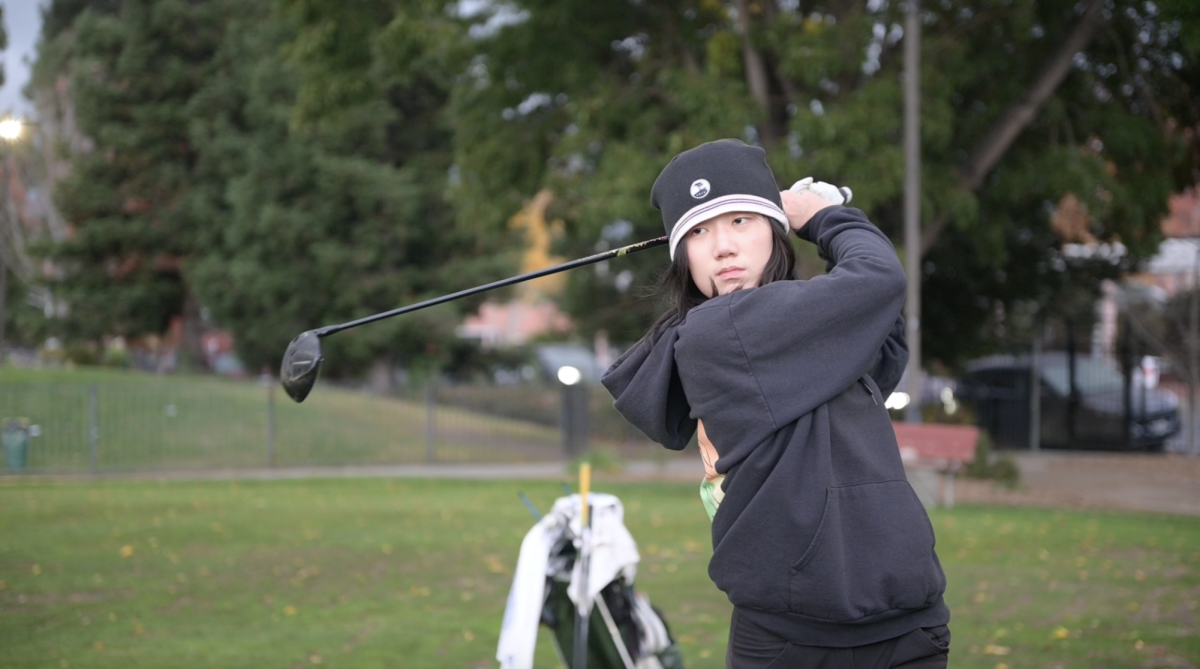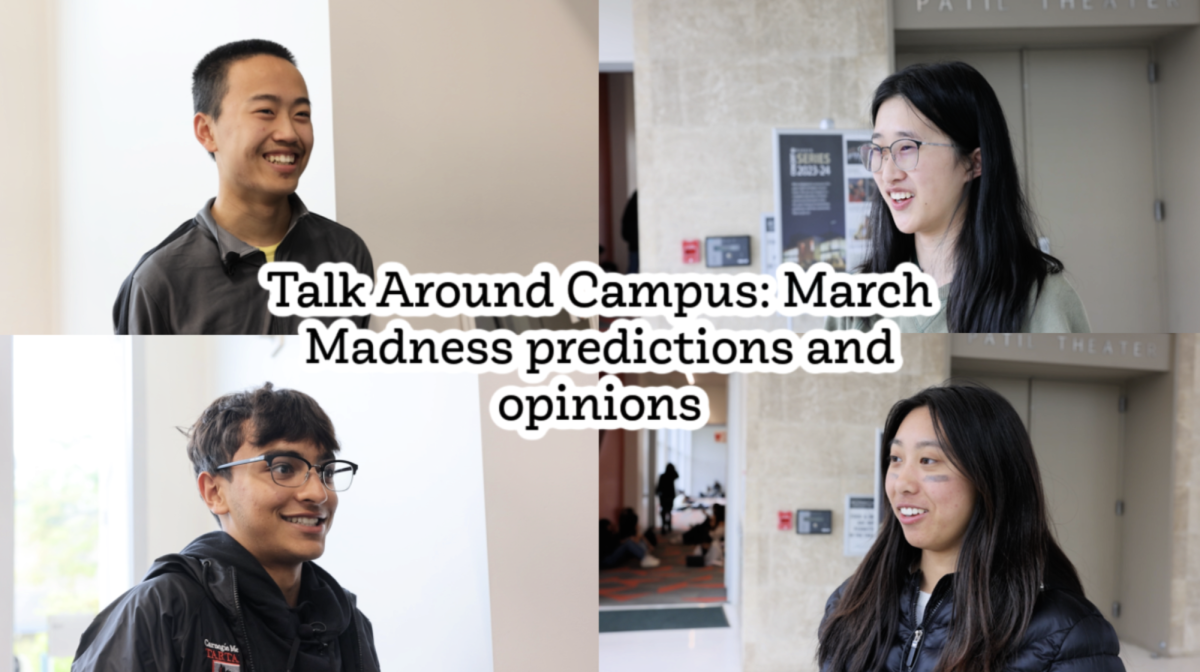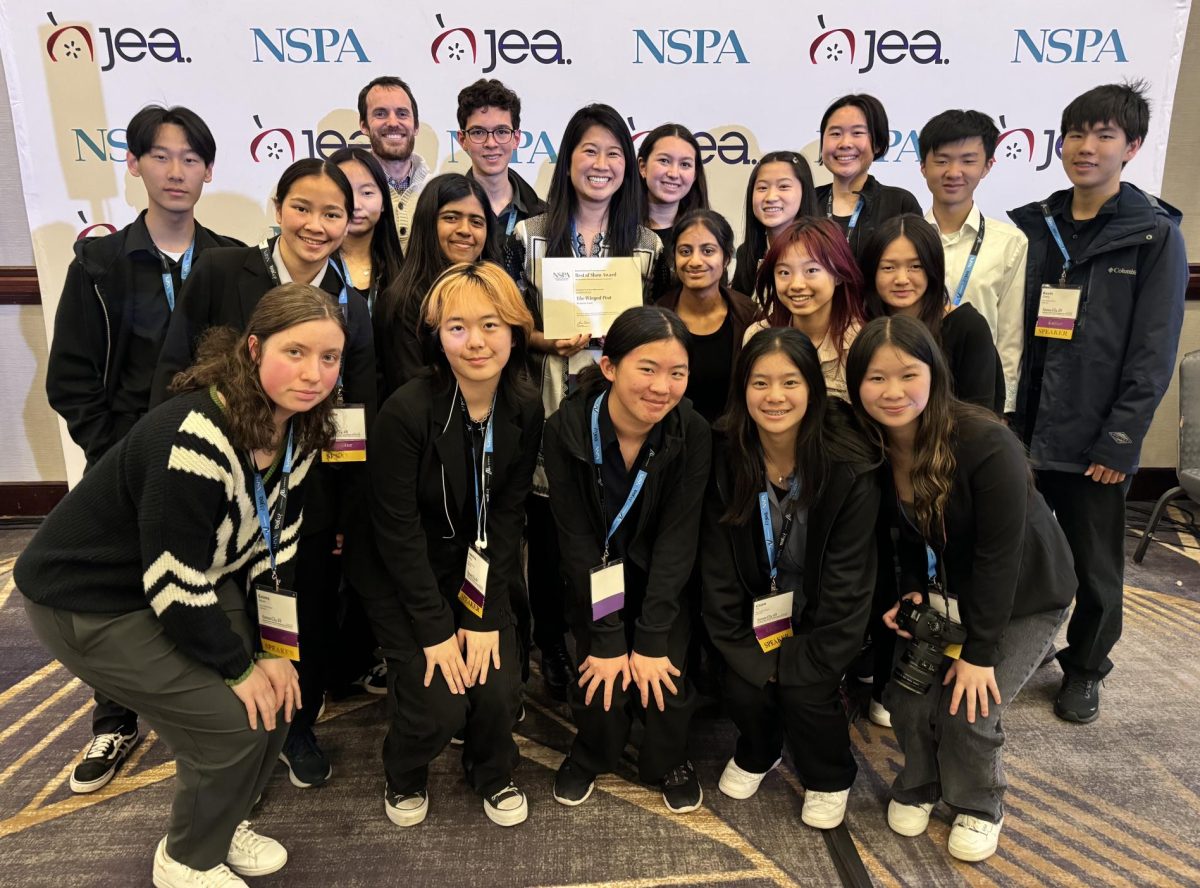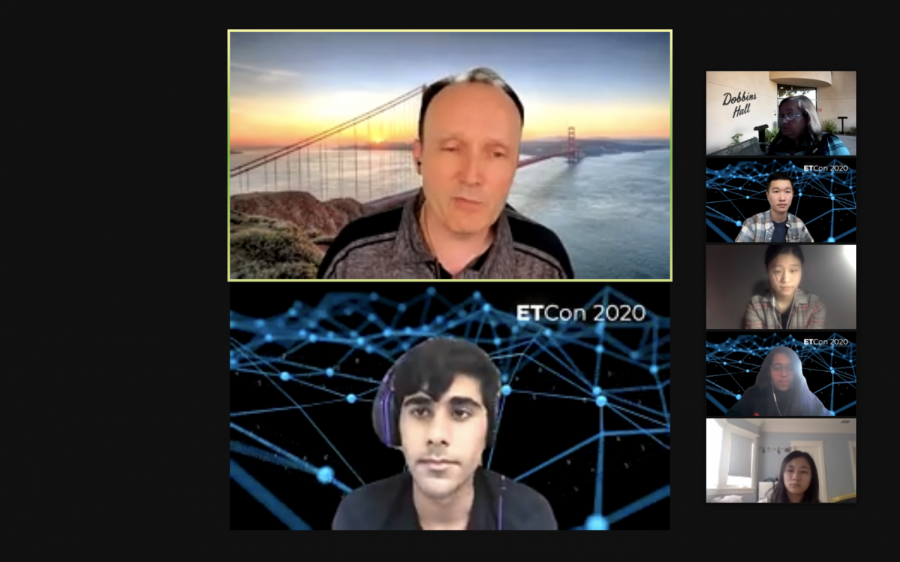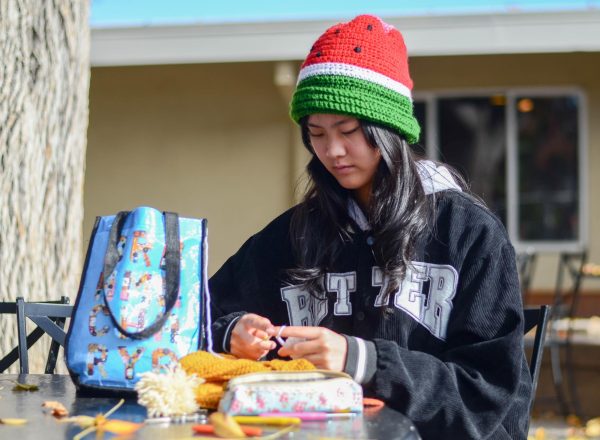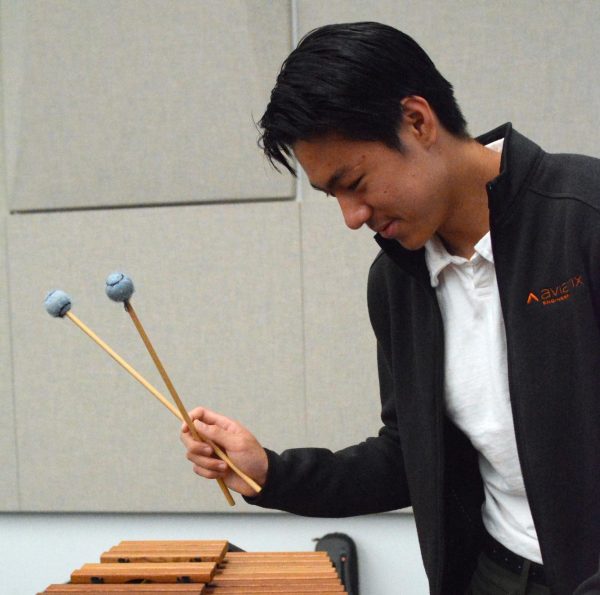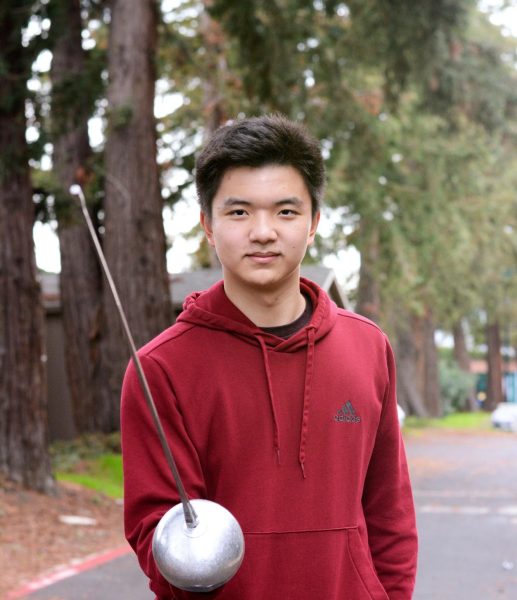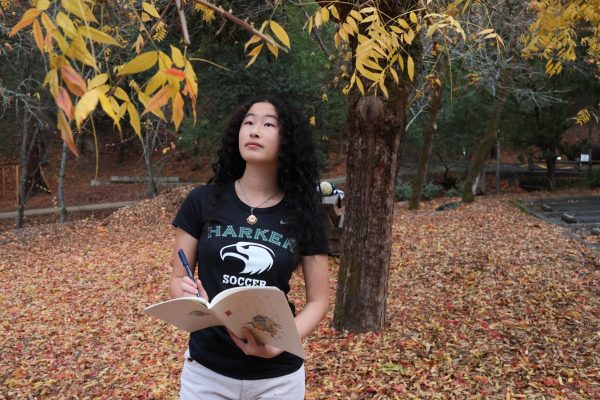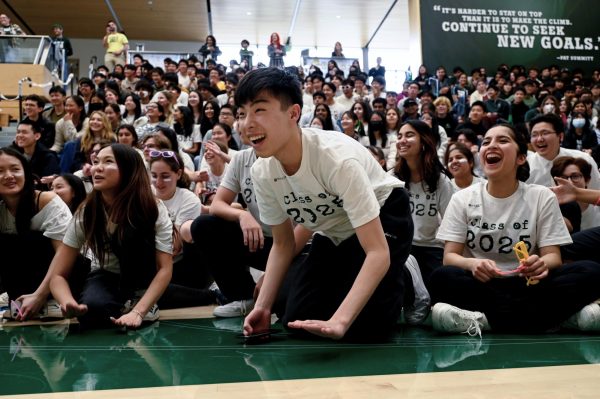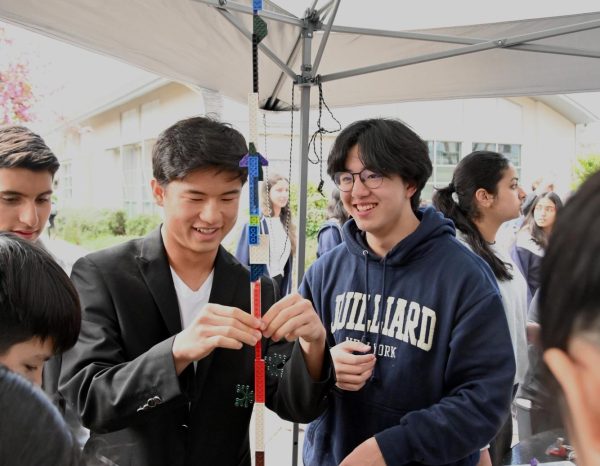Ethics in Tech Forum hosts virtual Ethics in Tech Conference
Bill James, chair of the Santa Clara County Democrat Party, answers a question in a Q&A held after his talk about data privacy. James cautioned students to be mindful of their actions on the web, warning that their digital footprint is tracked by companies.
October 24, 2020
The upper school Ethics in Technology club held their first virtual Ethics in Tech Conference (ETCON) on Oct. 23, hosting two speakers who discussed security and data privacy.
The conference began right after school at 3:30 p.m. with introductions by the club followed by a talk given by Bill James, patent lawyer and chair of the Santa Clara County Democratic Party. James discussed his work on data and security in regards to politics and how corporations use forms of social media to reach out to the public, encouraging participants to be wary of their data footprint.
“Be skeptical of the information that’s presented to you. Don’t assume you’re seeing information that’s generally being submitted, and don’t assume that it’s consistent with information that’s being presented to others,” James said. “Going to the information yourself with the sources that you trust will validate things.”
After a short break, Jason Lin (12), co-President of the club, introduced Alastair MacTaggart, founder of the California Consumer Privacy Act (CCPA), who talked about the development of the CCPA and Proposition 24, a second initiative to “set a floor on privacy in California” that would increase the enforcement of privacy protection if passed in the 2020 elections. Students were able to ask questions in a Q&A format after both talks.
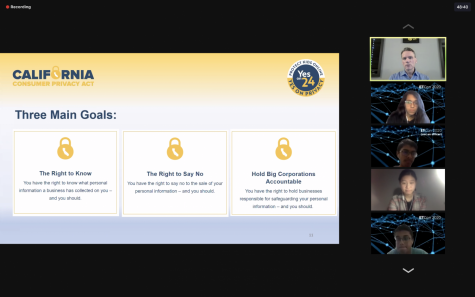
After the two presenters, participants were able to choose between two Zoom breakout rooms to attend a discussion of privacy versus public health led by Upper School Speech and Debate Teacher, Scott Odekirk, through a simulation of a data collection app, or a talk about discrimination and AI bias led by Ethics in Technology club officers.
The club held their first ever Ethics in Technology conference in the Nichols Auditorium in March of last year, inviting several speakers, and this year, moving the event to a virtual setting provided more options for growth.
“In some ways, [going virtual] was better because we could invite [more well-known] speakers as it’s just an online conference so they didn’t have to travel to Harker,” Jason said.
The officers also utilized the resources over Zoom to their best abilities to increase audience engagement. Mr. Odekirk led participants in a discussion by utilizing the chat functionality, which was also used to facilitate Q&A sessions.
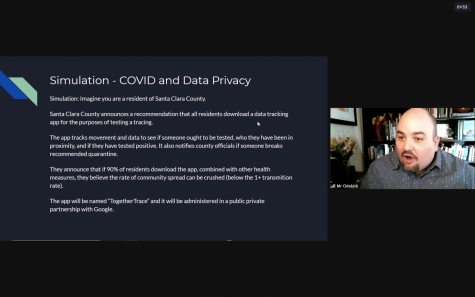
“We tried to increase the amount of audience engagement by including breakout rooms. We had Mr. Odekirk in one room, and in [another] room, Krish and I led some AI demos and had a discussion on AI prejudice and bias, similar to our club meetings,” Sidra Xu (12), the other co-President of the club, said.
The officers hoped that students would be more thoughtful about their online decisions, a point they addressed in each phase of the conference.
“In general, I hope that [participants have] become more aware of the implications of privacy loss,” Jason said. “Hopefully, people will have a mental barrier between just creating technology and not thinking about it versus really contemplating what its societal effect will be.”
The increased audience participation through, for example, discussions within breakout rooms provided a better experience overall for both the club and speakers and participants
“A lot of the discussions about limitations, rights that people have and the chain of custody was new information to me, and I really enjoyed learning about it,” Rahul Mulpuri (10), who attended the conference, said. “It [made] me want to be more involved in activism in terms of trying to correct these issues.”































![Setter Emma Lee (9) sets the ball to the middle during the match against Pinewood on Sept. 12. “[I’m looking forward to] getting more skilled, learning more about my position and also becoming better friends with all of my teammates, Emma said.](https://harkeraquila.com/wp-content/uploads/2023/09/DSC_4917-2-1200x795.jpg)













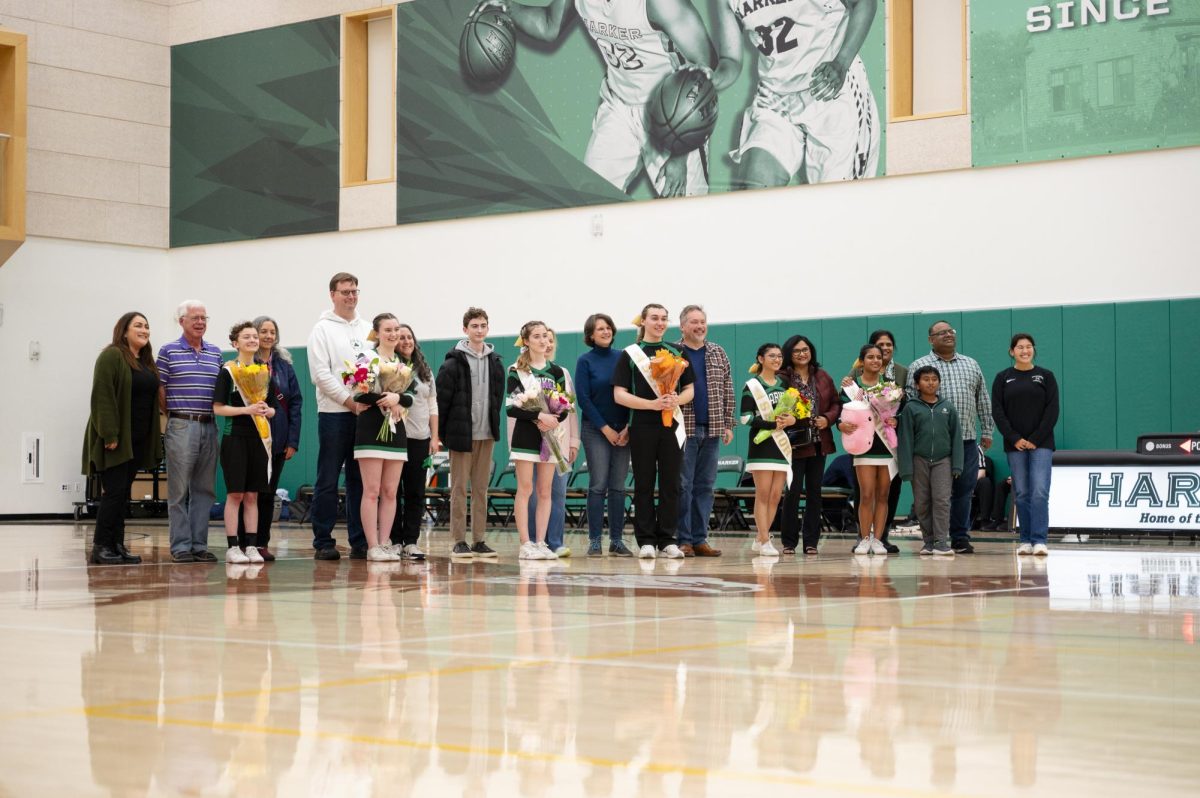





















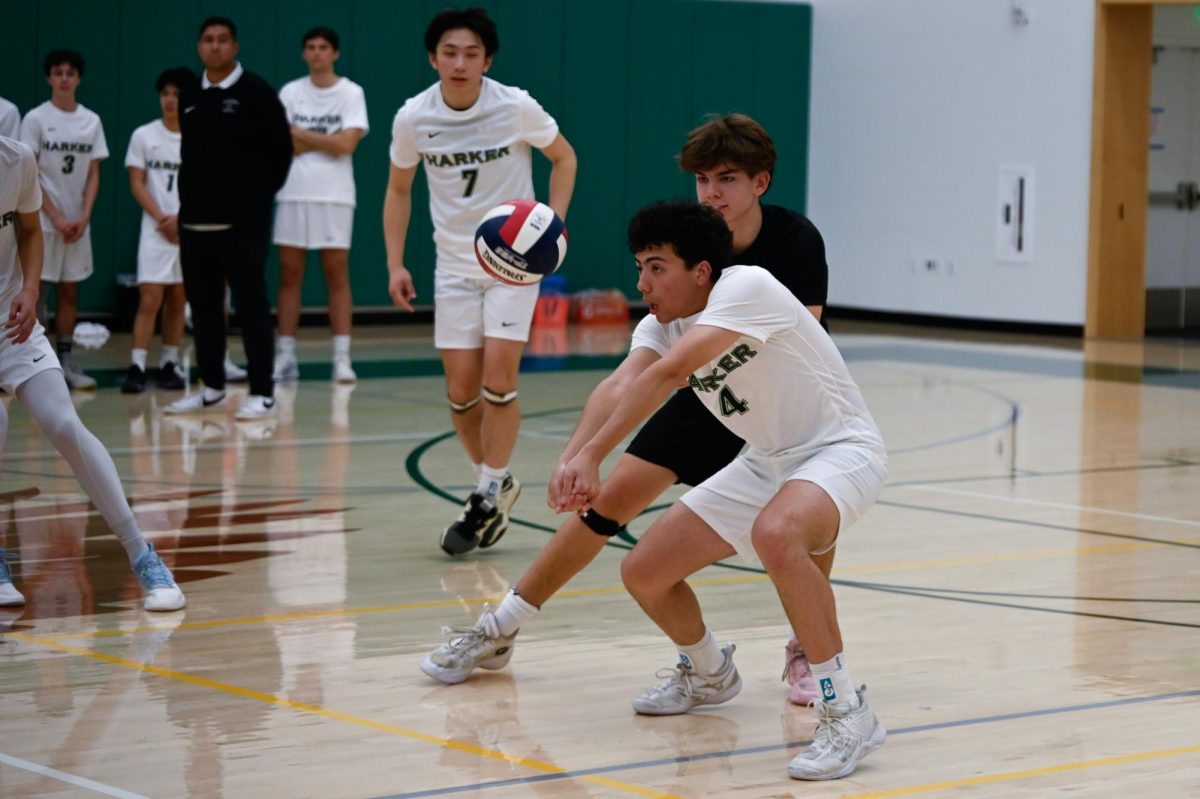




























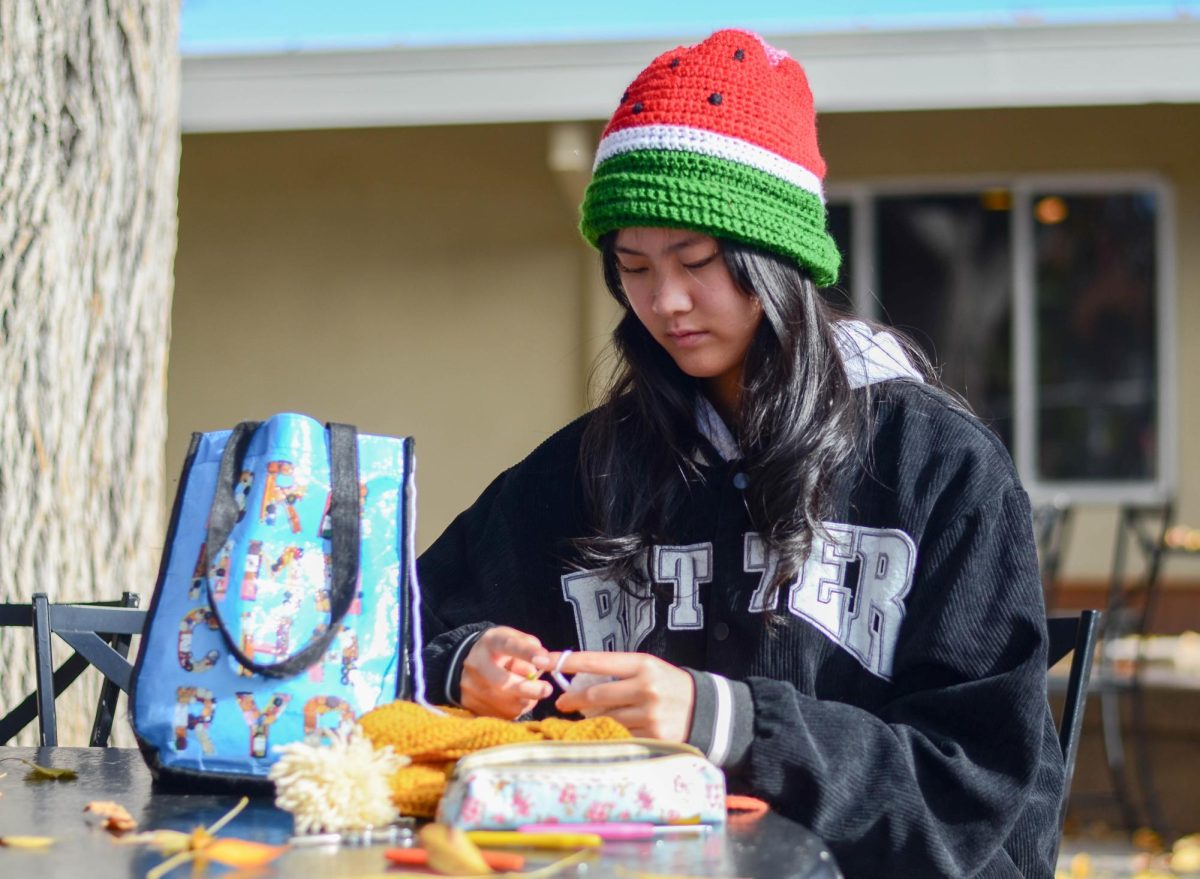
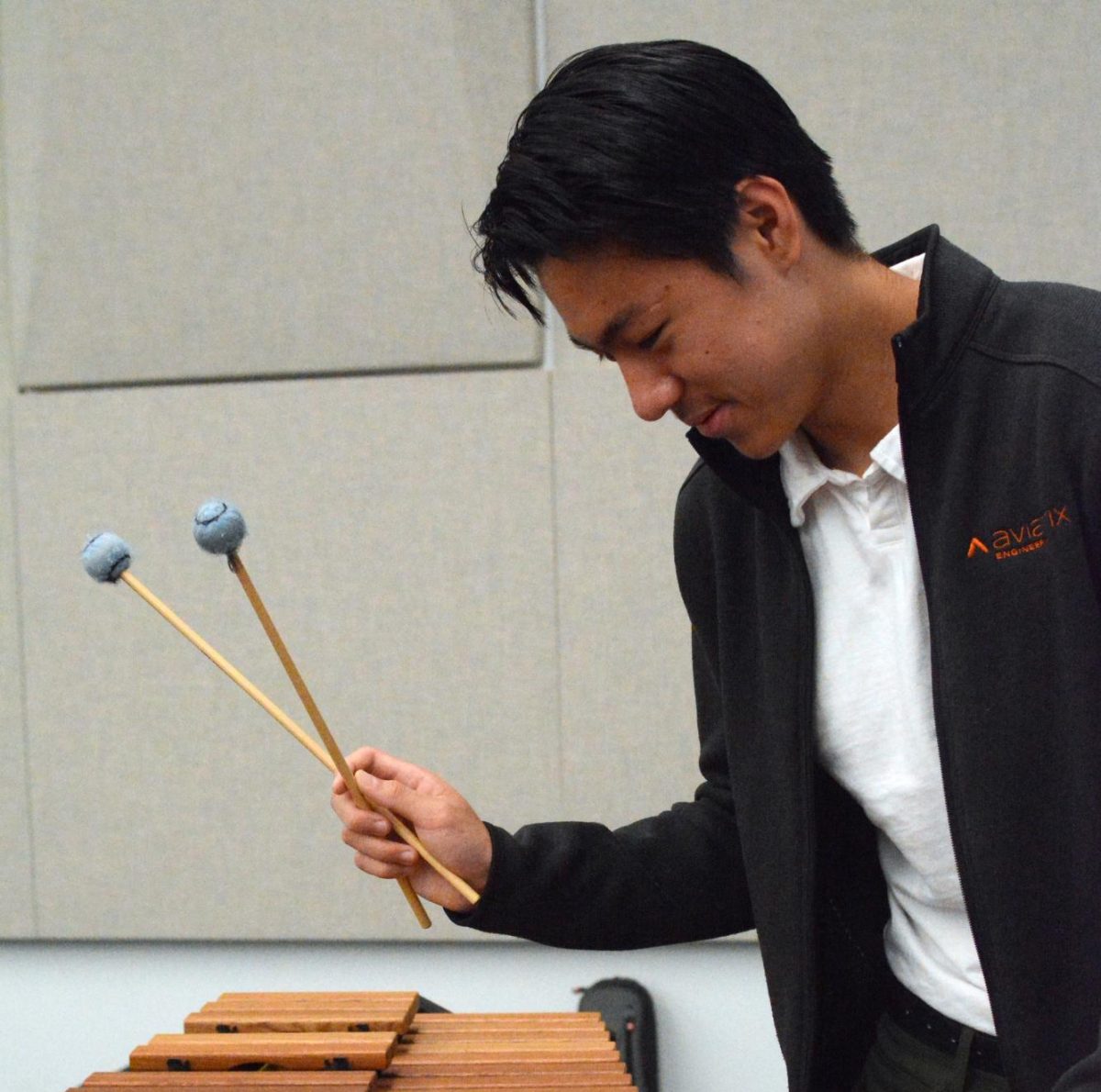
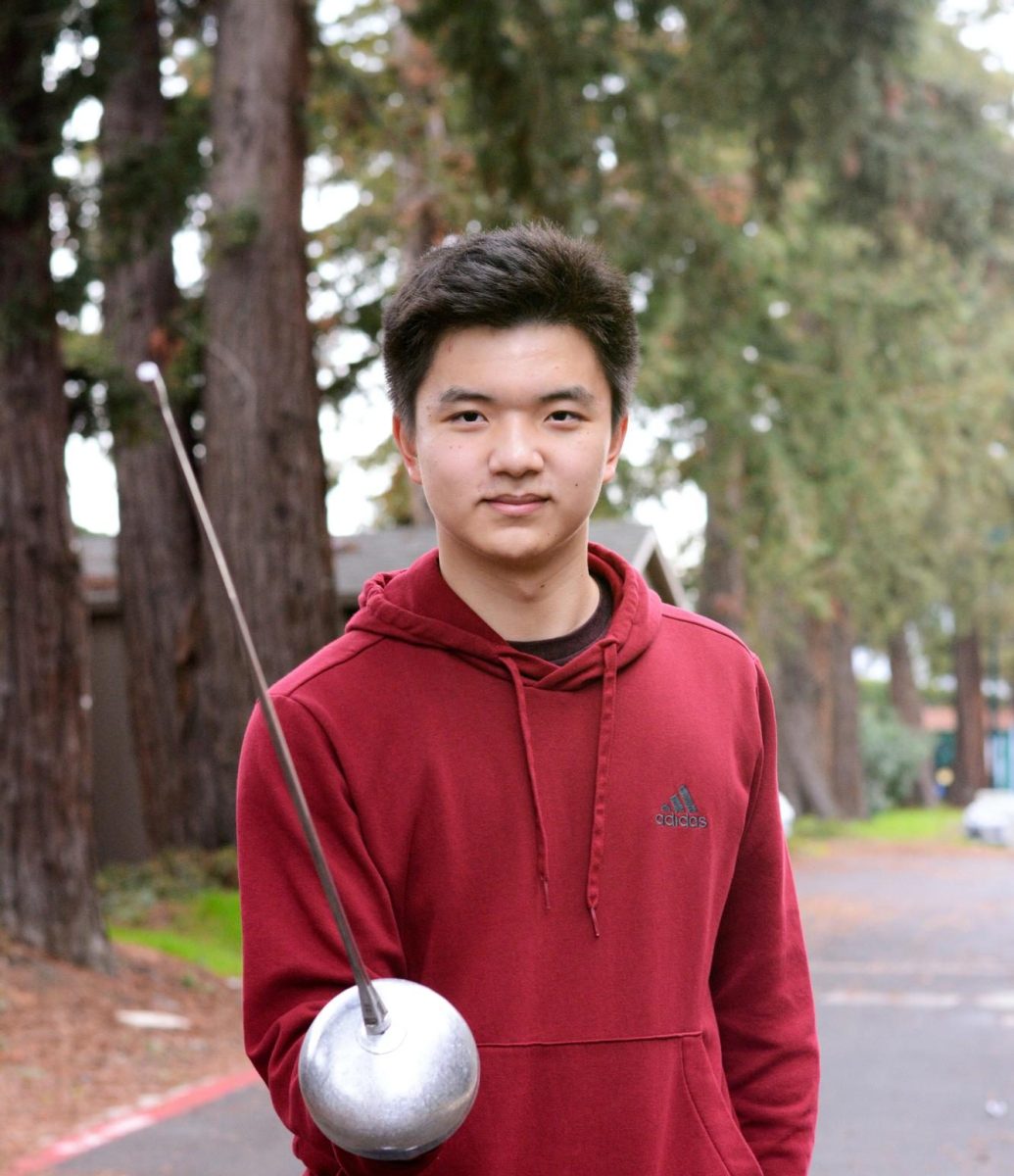
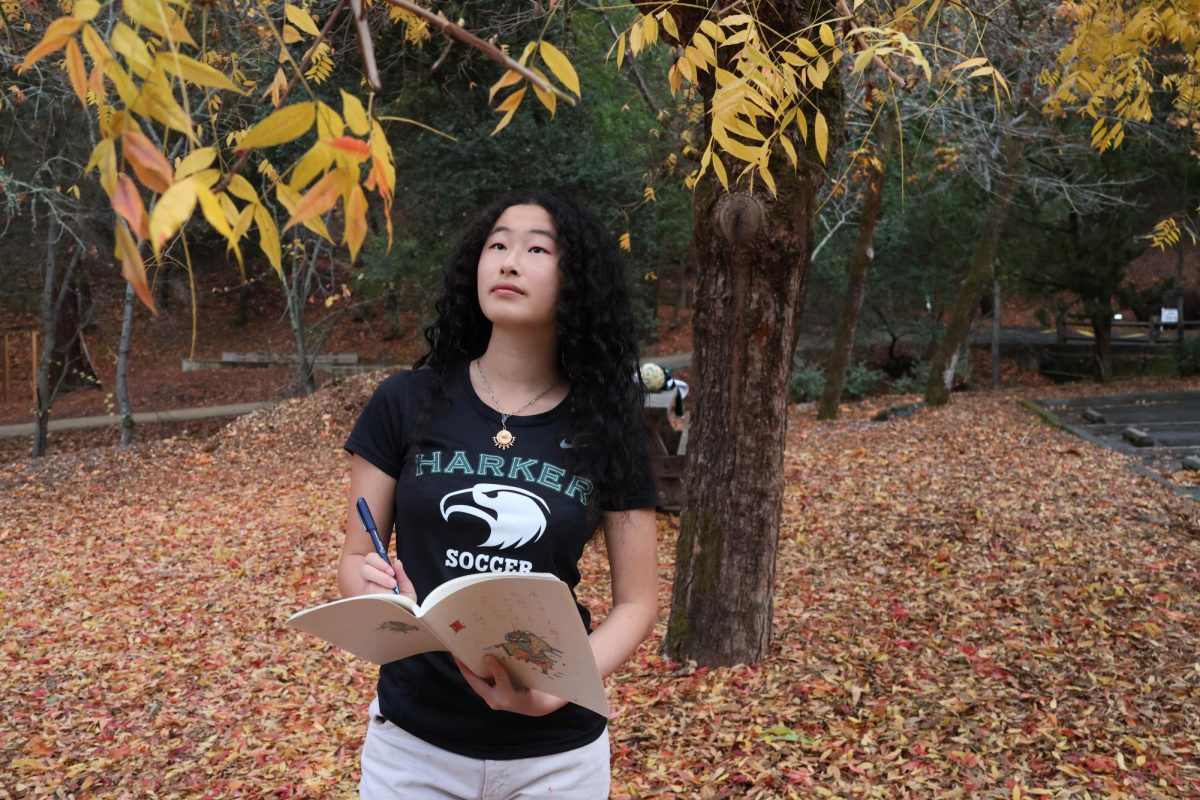










![“[Building nerf blasters] became this outlet of creativity for me that hasnt been matched by anything else. The process [of] making a build complete to your desire is such a painstakingly difficult process, but Ive had to learn from [the skills needed from] soldering to proper painting. Theres so many different options for everything, if you think about it, it exists. The best part is [that] if it doesnt exist, you can build it yourself, Ishaan Parate said.](https://harkeraquila.com/wp-content/uploads/2022/08/DSC_8149-900x604.jpg)


![“Animation just clicked in a way. I had been interested in art, but that felt different. [Animation] felt like it had something behind it, whereas previous things felt surface level. I wasnt making that crazy of things, but just the process of doing it was much more enjoyable, Carter Chadwick (22) said.](https://harkeraquila.com/wp-content/uploads/2022/08/Screen-Shot-2022-08-16-at-9.44.08-AM-900x598.png)


![“When I came into high school, I was ready to be a follower. But DECA was a game changer for me. It helped me overcome my fear of public speaking, and its played such a major role in who Ive become today. To be able to successfully lead a chapter of 150 students, an officer team and be one of the upperclassmen I once really admired is something Im [really] proud of,” Anvitha Tummala (21) said.](https://harkeraquila.com/wp-content/uploads/2021/07/Screen-Shot-2021-07-25-at-9.50.05-AM-900x594.png)



![“[Volleyball has] taught me how to fall correctly, and another thing it taught is that you don’t have to be the best at something to be good at it. If you just hit the ball in a smart way, then it still scores points and you’re good at it. You could be a background player and still make a much bigger impact on the team than you would think,” Anya Gert (’20) said.](https://harkeraquila.com/wp-content/uploads/2020/06/AnnaGert_JinTuan_HoHPhotoEdited-600x900.jpeg)

![“Im not nearly there yet, but [my confidence has] definitely been getting better since I was pretty shy and timid coming into Harker my freshman year. I know that theres a lot of people that are really confident in what they do, and I really admire them. Everyones so driven and that has really pushed me to kind of try to find my own place in high school and be more confident,” Alyssa Huang (’20) said.](https://harkeraquila.com/wp-content/uploads/2020/06/AlyssaHuang_EmilyChen_HoHPhoto-900x749.jpeg)













![“My slogan is ‘slow feet, don’t eat, and I’m hungry.’ You need to run fast to get where you are–you arent going to get those championships if you arent fast,” Angel Cervantes (12) said. “I want to do well in school on my tests and in track and win championships for my team. I live by that, [and] I can do that anywhere: in the classroom or on the field.”](https://harkeraquila.com/wp-content/uploads/2018/06/DSC5146-900x601.jpg)

![“I think getting up in the morning and having a sense of purpose [is exciting]. I think without a certain amount of drive, life is kind of obsolete and mundane, and I think having that every single day is what makes each day unique and kind of makes life exciting,” Neymika Jain (12) said.](https://harkeraquila.com/wp-content/uploads/2017/06/Screen-Shot-2017-06-03-at-4.54.16-PM.png)






